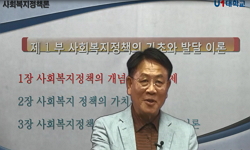본 연구에서는 복지국가의 재분배 효과와 역진적 선별성 문제를 이탈리아를 비롯한 남유럽과 한국의 사례를 중심으로 분석하는 것을 목적으로 한다. 룩셈부르크 소득 연구 (LIS)와 한국복지...
http://chineseinput.net/에서 pinyin(병음)방식으로 중국어를 변환할 수 있습니다.
변환된 중국어를 복사하여 사용하시면 됩니다.
- 中文 을 입력하시려면 zhongwen을 입력하시고 space를누르시면됩니다.
- 北京 을 입력하시려면 beijing을 입력하시고 space를 누르시면 됩니다.

역진적 선별성은 한국 복지체제의 고유한 특성일까? : 남유럽 복지체제와의 비교를 중심으로 = Is Regressive Selectivity a Unique Characteristic of the Korean Welfare System? : A Comparative Analysis With Southern European Countries
한글로보기https://www.riss.kr/link?id=A109743115
- 저자
- 발행기관
- 학술지명
- 권호사항
-
발행연도
2025
-
작성언어
Korean
- 주제어
-
등재정보
KCI등재
-
자료형태
학술저널
- 발행기관 URL
-
수록면
27-65(39쪽)
- 제공처
-
0
상세조회 -
0
다운로드
부가정보
국문 초록 (Abstract)
본 연구에서는 복지국가의 재분배 효과와 역진적 선별성 문제를 이탈리아를 비롯한 남유럽과 한국의 사례를 중심으로 분석하는 것을 목적으로 한다. 룩셈부르크 소득 연구 (LIS)와 한국복지패널(KWPS) 자료를 활용하여 소득분위 및 고용 유형에 따른 공적 이전 소득 분포와 재분배 효과를 파악하고, 회귀분석을 통해 연령, 가구소득, 고용 유형이 복 지 혜택에 미치는 영향을 규명했다. 분석 결과, 이탈리아를 포함한 남유럽 국가들은 높 은 사회지출에도 불구하고 기여 기반 사회보험이 내부자 중심으로 혜택을 집중시켜 불 평등 해소 효과가 미흡한 것으로 나타났다. 한국 역시 정규직 노동자와 같이 기여 이력 이 많은 집단에 혜택이 집중되어 취약계층 보호에 한계가 있음이 확인되었다. 이러한 결 과는 단순한 지출 확대만으로는 소득불평등 해소가 어렵다는 점을 시사하며, 복지제도의 구조적 개선과 취약계층을 위한 보완적 안전망 강화가 필요함을 보여준다.
다국어 초록 (Multilingual Abstract)
This study aims to examine the redistributive effects and the challenges of regressive selectivity in welfare states by focusing on cases from Southern Europeincluding Italy—and Korea. Utilizing data from the Luxembourg Income Study (LIS) and the Ko...
This study aims to examine the redistributive effects and the challenges of regressive selectivity in welfare states by focusing on cases from Southern Europeincluding Italy—and Korea. Utilizing data from the Luxembourg Income Study (LIS) and the Korea Welfare Panel Study (KWPS), the research assesses the distribution of public transfer income and its redistributive impact across different income deciles and employment types, while regression analyses investigate the effects of age, household income, and employment status on welfare benefit receipt. The findings indicate that despite high levels of social spending, Southern European countries such as Italy achieve only limited reductions in inequality due to contributory social insurance systems that concentrate benefits among insiders. Similarly, in Korea, welfare benefits tend to be allocated primarily to groups with extensive contribution histories, such as regular employees, which restricts the protection available to vulnerable populations. These results suggest that merely increasing expenditure is insufficient to reduce income inequality, highlighting the need for policy review and institutional reform to improve the structure of welfare systems and strengthen complementary safety nets for the vulnerable.
동일학술지(권/호) 다른 논문
-
윤석열정부 시기 연금개혁 과정의 특징 : 논점과 비난회피 전략의 진화
- 비판과 대안을 위한 사회복지학회/ 건강정책학회
- 주은선
- 2025
- KCI등재
-
프레이저의 포괄적 정의론에 정초한 지자체 정의의 이념형 탐색 : 노인을 중심으로
- 비판과 대안을 위한 사회복지학회/ 건강정책학회
- 최혜지
- 2025
- KCI등재
-
청년 정신장애인 동료지원가의 노동 경험에 관한 포토보이스 연구
- 비판과 대안을 위한 사회복지학회/ 건강정책학회
- 문은미
- 2025
- KCI등재
-
취약계층의 건강권 증진을 위한 보건·의료·복지 통합 301 네트워크 사업 성과분석 연구 : 서비스 이용자를 중심으로
- 비판과 대안을 위한 사회복지학회/ 건강정책학회
- 최권호
- 2025
- KCI등재




 KCI
KCI DBpia
DBpia






